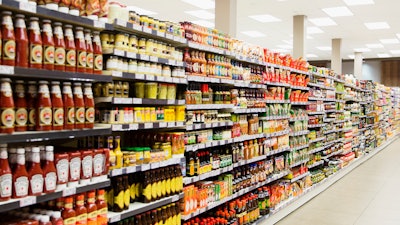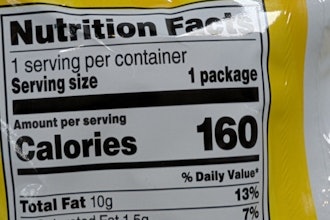
Private label enjoyed another record year in 2022. Sales of private label products climbed steadily last year, averaging 11.3% growth, nearly twice what national brands saw, according to a new report from the Private Label Manufacturers Association. In the U.S. last year, private label brands accounted for a record $228.6 billion in sales.
Global inflation has helped fuel private label’s growth, spurring consumers to turn to more affordable store brand alternatives to save money. Nearly 40% of high- and middle-income shoppers say they're buying private label as a cost-saving measure. Although in the past consumers have returned to national brands after economic hardships have passed, analysts see signs that this recent embrace of private label could mark a lasting shift in consumer habits that continues even after inflation eases.
On the surface, that’s great news for brands and retailers that have committed to expanding their branded product lines, but many of the same global trends that have helped accelerate private label sales have also created enormous business risks. Inflation, material shortages, growing global political tensions and supply chain bottlenecks have all complicated global sourcing, while tightening government regulations have necessitated that retailers pay heightened attention to their supplier networks, which have only continued to grow more complex.
These headwinds make supplier relationship management (SRM) software more integral than ever for brands and retailers. SRM software automates supplier management while providing a complete window into an enterprise’s entire supplier base, from factories and vendors to raw material providers. SRM is an invaluable compliance tool that can ensure a company’s complete supply chain network adheres to company policies and requirements. This software also creates strategic advantages for retailers by speeding up key operations and fostering collaboration with their supplier partners.
Here are three ways that supplier relationship management software helps retailers navigate today’s supply chain.
Ensuring Social Responsibility
Social responsibility has never been more top of mind for brands and retailers. Across the globe, governments have been implementing new regulations, from the German Supply Chain Act to the United States’ Uyghur Forced Labor Prevention Act (UFLPA). A similarly sweeping supply chain law looks likely to pass soon in the European Union.
The scope of each law varies, but in general they obligate retailers and merchandisers to employ appropriate diligence to ensure the elimination of forced labor and other human rights abuses from their supply chain. Most retailers are not equipped to ensure complete supply chain transparency. A 2021 survey of supply chain executives found that just 2% could identify their suppliers beyond the third tier. SRM software can help businesses catch up to tightening regulations with traceability tools that provide visibility into vendor, factory, and material provider relationships.
SRM software can also safeguard against regulatory violations by monitoring supplier compliance. A smart system can prevent merchandisers from booking orders with non-compliant suppliers and block shipping departments from booking shipments with them. This software prevents merchandisers from looking the other way and ignoring potential violations, ensuring a company’s standards are enforced consistently.
Creating Efficiencies
SRM software helps bring products to market faster. The software monitors vendor certification statuses, sending alerts about expired certifications and other red flags so that compliance teams do not need to monitor each supplier individually. And with these systems, all departments involved in product development have visibility into every supplier’s status.
Automation also speeds up the selection and onboarding process for vendors, shaving days and sometimes even weeks off the process — a huge advantage for retailers expanding their private label categories. Automated onboarding guarantees that all new suppliers have agreed to the company’s terms and conditions.
Some SRM systems go even further. My company TradeBeyond’s SRM module, part of an overall multi-enterprise supply chain platform, can also integrate with databases that buyers, merchandisers and compliance managers routinely cross-check, such as amfori BSCI, Higg, and WRAP. Integrations like this can eliminate hundreds of hours of tedious manual work for overtaxed compliance teams. Especially when used as part of a multi-enterprise platform, SRM systems lower the cost of developing products while reducing time to market.
Fostering Collaboration
SRM software also introduces other strategic advantages for merchandisers and buying teams by creating a central communication channel with their suppliers.
Increasingly, retailers understand the value of close collaboration with their vendors, especially as the supply chain network becomes more complex. A formative McKinsey survey of more than 100 major companies found that the ones that most collaborated with suppliers saw higher growth, greater profitability and lower operating costs than their peers. This collaboration has become more difficult since the pandemic, however, as merchandisers have scaled back the face-to-face interactions they used to routinely have with their suppliers. Falling out of touch with suppliers means these companies are cut off from the valuable insights and suggestions those suppliers can offer.
Best-in-class SRM software facilitates the same conversations companies and their suppliers used to have face-to-face faster and without the travel. This software creates a virtual platform where all stakeholders can share the necessary information they need to collaborate and quickly make the most strategic decisions.
Brands and retailers are under heightened pressure to bring products to market quicker and more cost effectively. As they navigate the added challenges of a supply chain that has grown more fragile and regulated since the pandemic, the strategic advantages, safety nets and time savings that SRM software creates are critical for helping them more efficiently and responsibly grow their private label lines.
Eric Linxwiler is senior vice president of TradeBeyond.






















